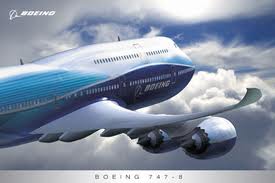With a new service mark and an expansion of its GoldCare life- cycle support program, Boeing Commercial Aviation Services (CAS) is signaling a strong push to capture a major share of an aircraft services aftermarket it estimates will be worth $2.3 trillion over the next two decades.
 |
| Photo Credit: Boeing Images |
At last week’s Singapore Airshow, however, Lufthansa Technik Chairman August Wilhelm Henningsen cautioned against aircraft makers being in aftermarket services. “They should concentrate on building the aircraft,” he says. “The [MRO] industry is more overserved than underserved.”
Singapore Airlines Cargo says it will use GoldCare to manage engineering and planning services for its 13 747-400 freighters. GoldCare was launched in 2005 as a blanket protection program for the 787 and subsequently was expanded to include the 737NG series. The move to cover 747-400Fs will not be the last for GoldCare, says Mancini. “I really see it being used on all our fleets.”
GoldCare met a tepid response from 787 buyers, who apparently found Boeing’s approach overwhelming. GoldCare was subsequently reorganized to offer a more “a-la-carte” approach but has yet to gain wide-scale acceptance. Prior to SIA’s signing, GoldCare had attracted only one user, Tui Travel, which fit the early likely subscriber profile—a smaller fleet-owner without an extensive maintenance base to care for a new-technology airplane like the 787.
Boeing launched Boeing Edge to distinguish its after-sales services. It will cover OEM product support and four core service capabilities: Material Services, Fleet Services, Flight Services and Information Services. The name is meant to convey that customers gain a competitive edge by using Boeing’s services and support.
But Lufthansa says it is the one with the competitive advantage in providing MRO services. OEMs “know the strengths and we know the weaknesses” of their products, it says. Successful support is all about managing those weaknesses.
Aviation Week
No comments:
Post a Comment